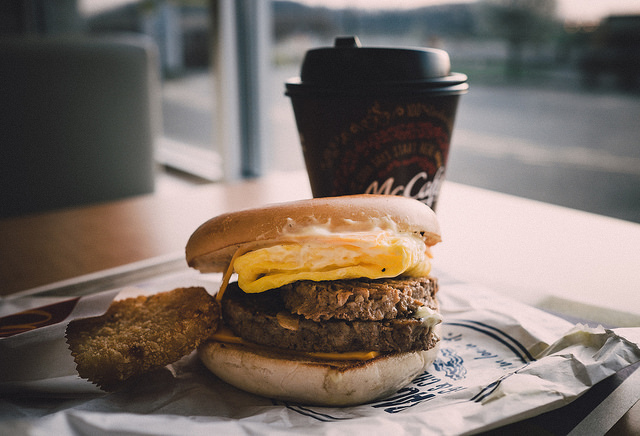Since August, I’ve been living as a traveler, and will continue to do so until some time next year.
My wife, son and I are traveling around the Caribbean and Central America. It’s great to be back living a more mobile life in all kinds of exotic locations.
But, as a vegan, it is also challenging.
I have tried to maintain this aspect of my life as much as possible, but have also tried to be more flexible. Sometimes, though, I question to what extent I should be flexible with something that is an integral part of my life.
Adapting to your environment is a necessary thing. As humans, we have always needed to physically adapt to new habitats. But the kind of adaptation needed by a traveling vegan is more of a cultural adaptation, I think.
On a physical level, I can usually find food that will sustain me—with a little bit of effort, that is. I just need to buy rice, beans and vegetables and I can cook everything I need to survive.
It is in social situations that the issue of flexibility arises most.
In social situations, being a vegan poses many challenges. Namely, most of what most people eat isn’t vegan.
If I could be completely flexible, I would eat what everyone else is eating—meat, eggs, milk and all. But in doing so, wouldn’t I have compromised all of my principles? Or should I place the wishes of the group above my own values?
I think that we should all live according to our own principles. We all need to earnestly think about what is right and live according to this view of truth. We will all have different principles and there will be times that our principles will conflict. But, there will also be times when our principles do not conflict, we simply choose to let go of them.
Most people think that it is perfectly permissible to eat meat. I think eating meat is wrong.
If I am with a group of people who eat meat but I don’t eat meat, is anyone infringing on anyone else’s principles? No. My decision not to eat meat has no bearing on other people. Therefore, they are not infringing on my values by eating meat. Likewise, other people’s decision to eat meat is in no way compromised by me not eating meat. So there is no issue of principle involved.
But this doesn’t make the situation any less difficult.
One reason the situation is challenging is that the group of meat eaters may feel inconvenienced by having to accommodate a non-meat eater. Some non-meat eaters will be so affected by this that they will decide to eat meat so as not to inconvenience the others.
But here we have another issue: which is more important, that a person’s comfort level isn’t compromised or that a person’s principles are not compromised? Obviously, principles stand above comfort—though in a hedonistic society it is often the reverse.
Another issue that arises is that if someone chooses not to participate in what the majority of the group is doing, they can be seen to be some how causing disunity.
An example of this is when I attended a wedding reception in China. The father of the bride came to say cheers to all of us at the foreigner table. Everyone held up their glass of beer and said Ganbei with the father.
I don’t drink alcohol, so I held up a glass of sprite. This was not Ganbei worthy. The father would not say cheers with me. He sternly shook his head at me in refusal. Some of the people at the table suggested that I try green tea, so I poured some green tea and held it up, hopefully. That didn’t work either.
I had clearly offended the father and showed him that I did not want to be part of the group. But he had clearly shown me that he didn’t respect my principles.
Which is more important, respect for cultural customs or respect for moral principles? In my opinion, culture is beautiful, but only truth deserves to be bowed down to.
So to what extent should we be flexible?
I’d say we can and often need to be flexible with our wants, desires and expectations. These are non-essential and not based on truth.
But in order to live up to our principles, we cannot be overly flexible with them. We need to stick to them.
Of course, there may be times when we will need to choose between one or another of our own principles. For example, if a hungry child came to me asking for food, and I went to the store and all that was there were hot-dogs, I would buy the child a hot-dog. Why? Because I value a person’s well-being more than an animal’s.
To me, a principle should only be sacrificed for a higher principle. Not all our principles are of equal importance, so sometimes we have to decide what is more important to us.
But, only we ourselves can do this kind of prioritizing with our values.
Love elephant and want to go steady?
Sign up for our (curated) daily and weekly newsletters!
Author: Peter Gyulay
Editor: Emily Bartran
Photo: rpavich/Flickr



Read 0 comments and reply